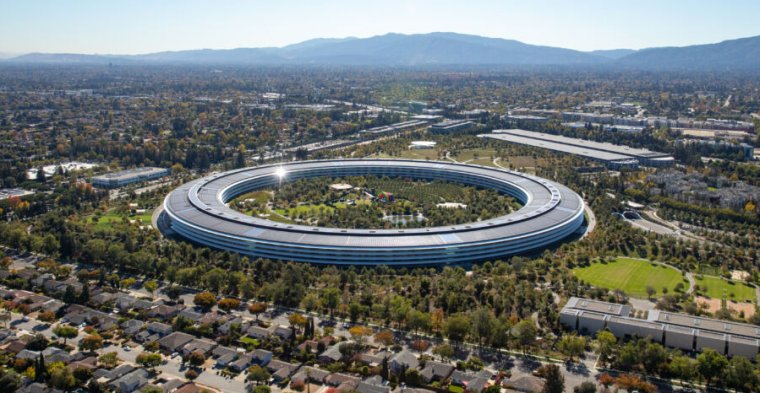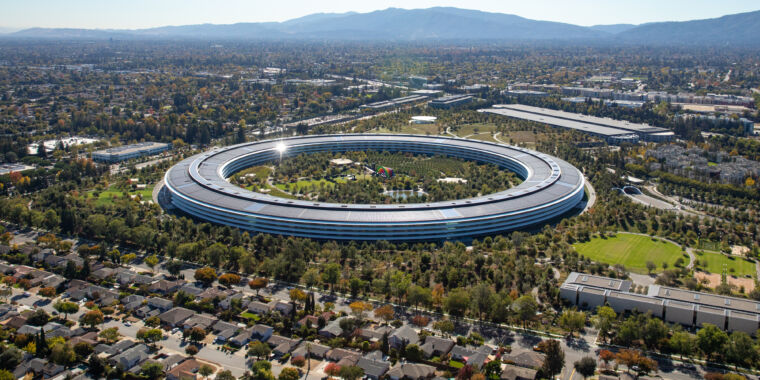
It’s been a rocky road for Apple’s return-to-office plans. Over the past few months, we’ve reported on numerous stops and starts, but the industry behemoth seems to have come to the hardest stop yet, according to a Bloomberg report.
According to a memo sent to Apple employees by CEO Tim Cook, the company’s return-to-office date (which was last set at February 1 a few weeks ago) has once again been delayed—but this time, it has been delayed to a “date yet to be determined.” Up to this point, previous delays had set a new target. Not so this time.
Cook wrote in the memo that the delay is due to “rising cases in many parts of the world” as well as “the emergence of a new strain of the virus.” He described the change in plans as a delay, though, not a cancellation. Employees will get at least four weeks of notice before a new return-to-office date, he added.
He also said that Apple will give each employee a $1,000 bonus. Although the money is intended to help them with their “home workspace,” Cook added that the money “can be used as you see fit.” The bonus will also go to retail workers, and Cook said the bonus is “in support of our commitment to a more flexible environment.”
Apple has, to date, been more aggressive in rejecting long-term, fully remote options than many other big tech companies with a major presence in Silicon Valley.
While Twitter and others implemented new policies after COVID-19 that could, in many cases, essentially allow employees to work from home permanently, Apple’s leadership has pushed for a hybrid model: some days would be spent in the office, but employees would be able to take certain days a week as well as an annual allowance of work-from-home days.
A group of employees at the company have organized to push for more permissive long-term policies. In some cases, employees just want to be able to spend more time at home for child care, personal mental health, or other reasons. But in some others, individuals want to move outside of the pricy cities where Apple’s biggest offices are located.
The challenges Apple is facing are not unique, however. Other big tech companies have also repeatedly delayed their return-to-office plans, and for the moment, a lot of employees at companies like Apple and Microsoft are still working fully remote. That no longer looks like it’s going to change in a significant way in the next couple of months.
